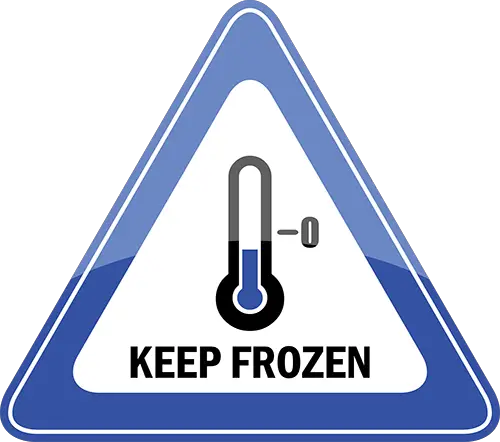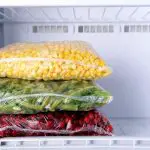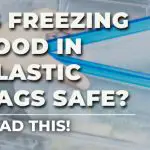Does Freezing Kill Bacteria? (Meat, Water, Yogurt, and more)
If you’ve ever left food out on the counter for too long and allowed bacteria to possibly start growing on it, you may have wondered if you can kill the bacteria by putting the food in the freezer. But does freezing kill bacteria on food and drink items such as meat, water, yogurt, and others?
While freezing kills some bacteria, there are still millions of these microbes that simply enter a dormant state and come back to life once the food is thawed. The most significant factor determining whether freezing kills bacteria or not is the species and the process of freezing that you implement.
Continue reading to discover what freezing does to the bacteria in your food, plus the best way to prevent foodborne illnesses.
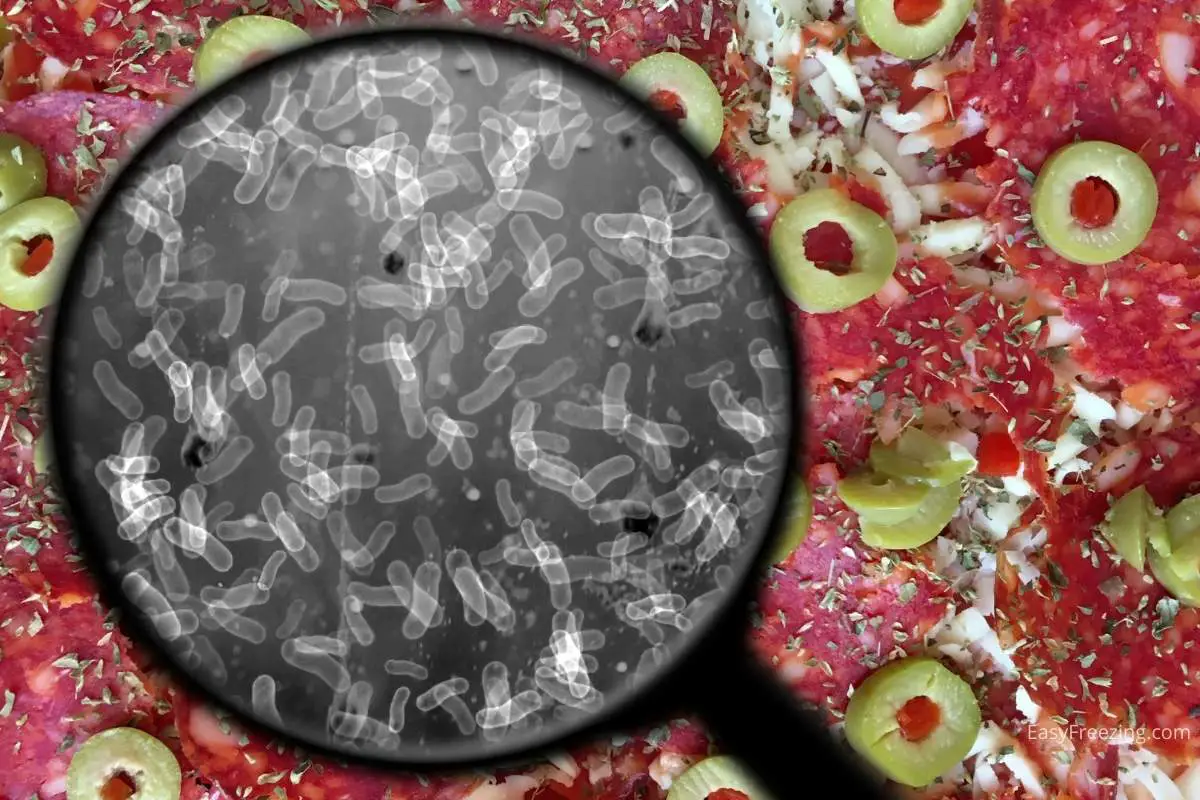
Does Freezing Kill Bacteria In Food?
Foodborne illnesses are relatively common, and you must take food safety seriously if you want to avoid them.
All food contains water; bacteria also hold water in their cytoplasm.
When you put food in a freezer, a process called slow freezing occurs where rigid ice crystals form that can damage bacterial structures such as cell walls and DNA. In addition, water expands when it freezes, which can cause the bacteria to burst.
Both freezing and thawing can pose a hazard for microbes when it comes to the freezing process; one study concluded that in some circumstances, freezing and thawing could be more effective at killing bacteria than freezing alone.
Why Do People Believe That Freezing Food Will Kill The Bacteria?
Several consumers (and professionals) will tell you that freezing food is an excellent way to kill germs and bacteria, making it safe for consumption. But this is not the case.
It’s easy to see where this theory stems from; bacteria and other microbes depend on water for their survival, so if you freeze this water, it would be natural to assume that you take away the life source of the bacteria.
But, this assumption can have severe consequences on your health.
How Cold Does A Freezer Need To Be To Kill Bacteria?
In a 2019 Cleveland Clinic article, Alok Vij, MD, specified that bacteria would need exposure to temperatures of at least minus 80 degrees to kill them. But in an NPR report, another scientist stated that they regularly stored microbes at temperatures of minus 80 degrees because it doesn’t kill them; instead, allowing them to be analyzed later on.
When you compare this to the average temperature of a household freezer which sits around 0-4 degrees F, you’ll see that it’s an insufficient method for killing bacteria.
Does Freezing Meat Kill Bacteria?
The act of freezing meat does not kill the bacteria present; it will only slow their growth. Still, once you thaw the meat, these microbes could be alive and continue to grow. That’s why it’s essential to cook meat sufficiently before consuming it.
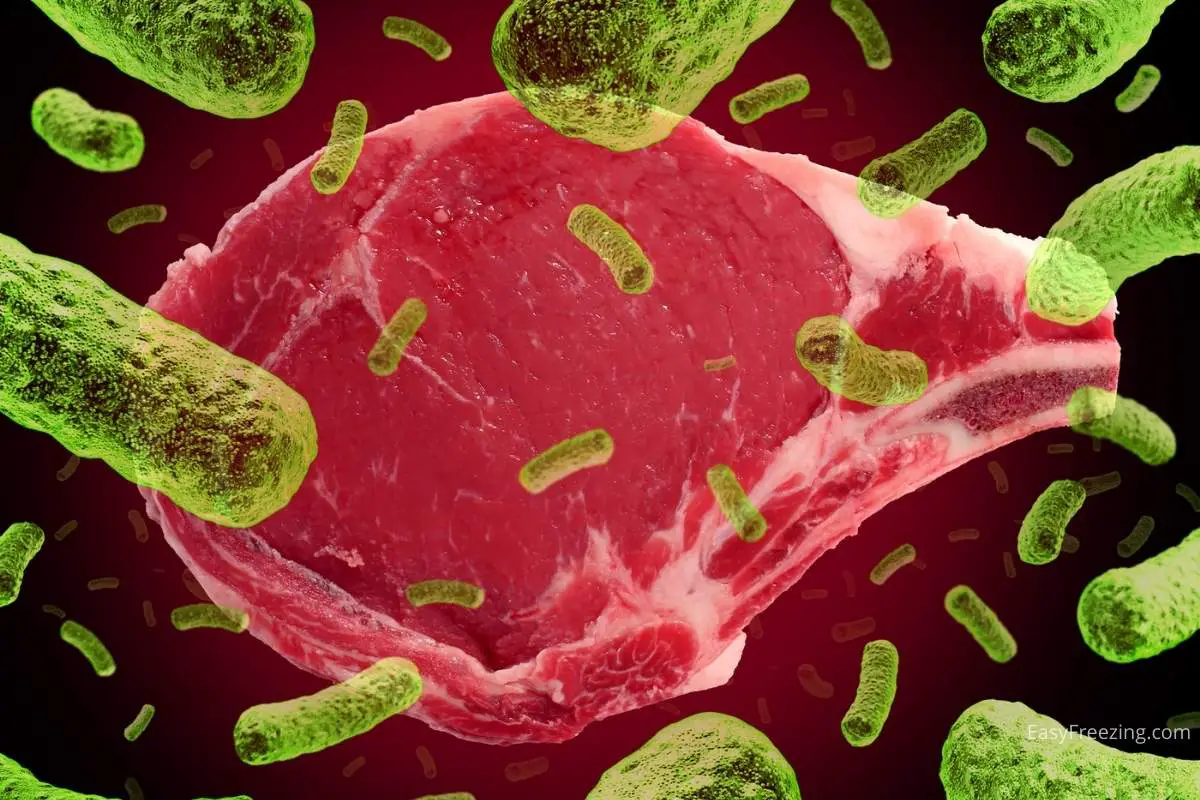
An anaerobic environment ( i.e. without oxygen) will starve the bacteria of oxygen. While this won’t kill all microbes, it will drastically reduce the number of microbes; some don’t need oxygen to survive, but most will stop growing before the temperature freezes.
However, an anaerobic environment is challenging to achieve with a standard freezer, and you could only accomplish this atmosphere through commercial freezing methods and equipment.
With meat, it’s also essential to factor in the amount of time it spends out of the freezer; the longer meat sits at an ambient temperature before you cook it, the higher likelihood that these bacteria will come back to life and continue to grow.
Generally, the most rapid growth occurs once the meat has been out of the freezer for at least two hours.
Does Freezing Meat Kill E-Coli?
E Coli is a bacteria in the intestines of humans and animals; these same bacteria are often present in raw meat. Some of these can cause disease by infecting your intestinal tract.
This bacteria can also spread to other organs, such as your kidneys, so you must prepare and cook meat properly, ensuring that you wash your hands thoroughly.
Freezing will not kill E Coli, so you must use other methods to prevent contamination. The most effective way to kill E Coli is to ensure you cook your food at a minimum of 158 degrees Fahrenheit (70 degrees Celsius) for a minimum of two minutes.
Does Freezing Meat Kill Salmonella?
Salmonella is a bacteria that lives in several environments, including water, soil, and food. This microbe is also found on raw meat, and although cold temperatures slow its growth, freezing will not kill the germs entirely.
Again, the best way to combat food poisoning from salmonella is to ensure you cook food to a minimum of 158 degrees Fahrenheit (70 degrees Celsius).
How Can I Prevent Harmful Bacteria Growing In My Meat?
Freezing alone will not stop the spread of bacteria in your meat. Instead, you’ll need to combine freezing with several other methods to destroy the bacteria.
Chop meat into chunks before you freeze it. This allows you to quickly thaw and cook it so that you’re not exposing the meat to ambient temperatures for too long once you defrost it.
Use an airtight container to prevent bacteria from getting into it, and tightly wrap your meat in foil before placing it in the container. Not only does this help to create a barrier against microbes, but it also helps protect your meat against freezer burn.
Most importantly, once you thaw your meat, ensure it is cooked thoroughly before consuming it.
Does Freezing Water Kill Bacteria?
Freezing water does not kill any bacteria present; it merely hinders further growth of the microbes.
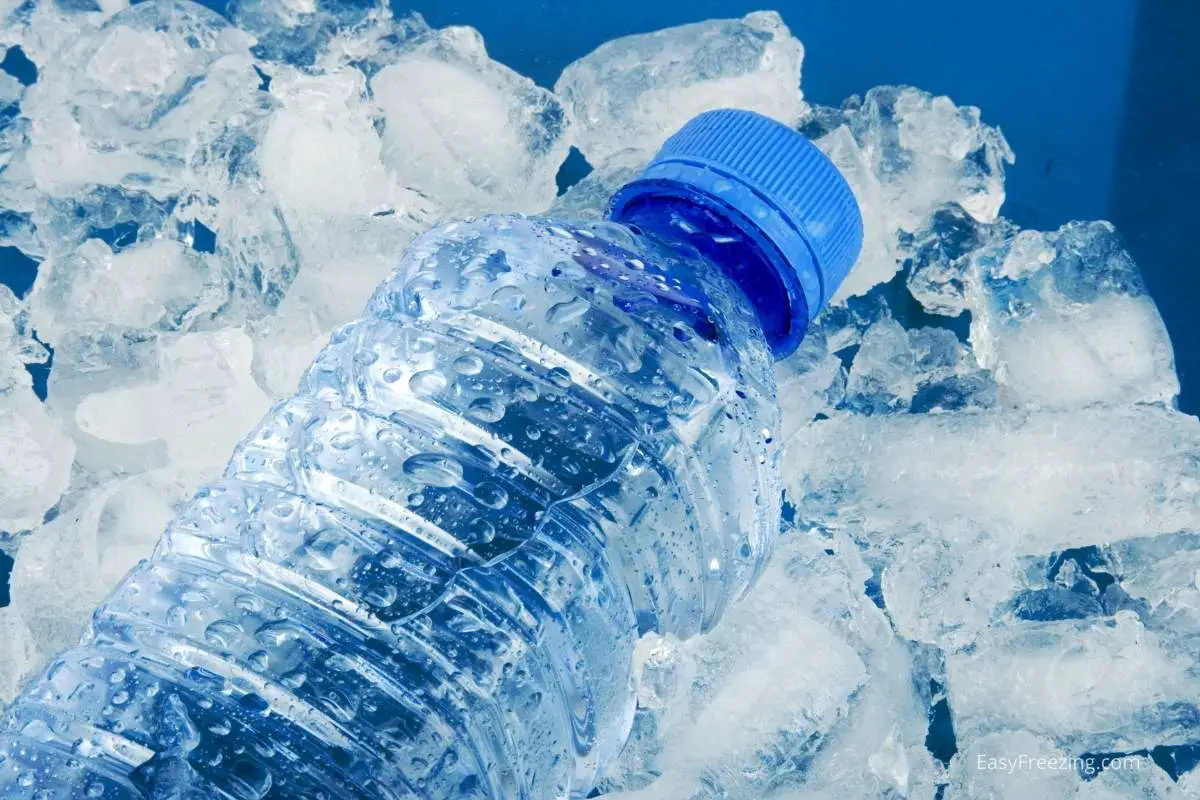
When attempting to prevent bacterial illnesses, people resort to several methods that they believe will make their water safe for consumption, one of which involves freezing it. But freezing water does not make it safe to drink; if your tap water is contaminated, you could still get sick.
In contrast, the most effective way to kill bacteria is through UV light filters. This is an eco-friendly and healthy way to solve bacterial issues in your water supply. Sometimes, boiling can be effective but not if your tap water contains contaminants that increase in concentration when boiled, like heavy metals.
Does Freezing Yogurt Kill Bacteria?
When it comes to the healthy bacteria found in yogurts, you’ll want to ensure that freezing will not kill these beneficial bacteria, and luckily this appears to be the case.
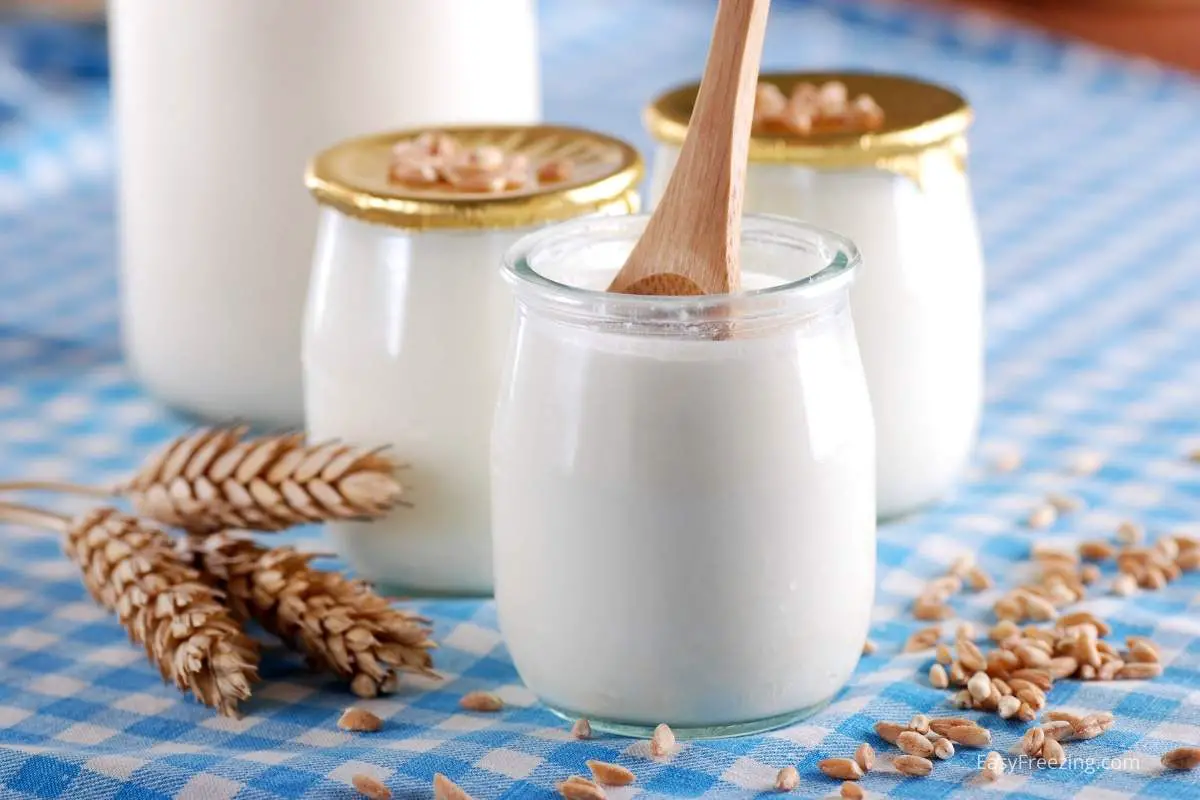
Like other types of food, freezing a yogurt will only put these probiotics in a state of suspended animation, and you can still gain the active benefits once you defrost the product. The main difference with defrosted yogurt is that it may become thinner or more grainy after being in the freezer.
Can I Eat Food Straight Out Of The Freezer?
Freezing does not kill sufficient enough amounts of bacteria to make the food safe to eat. Some bacteria have developed repair mechanisms to repair damaged DNA and survive even in frozen foods.
In addition, some bacteria can produce proteins that can prevent ice crystal formation, which keeps the water around them in liquid form and helps avoid damage to their cells.
And microbes survive freezing by placing their body in a dormant state, where they show zero metabolic activity. This is similar to hibernation, allowing them to survive extreme conditions for extended periods before returning to a normal state.
Does Refrozen Food Carry A Higher Risk Of Food Poisoning?
According to the Food Standards Agency, refrozen food carries a higher risk of food poisoning. This is because when food has sat out for a while and is then frozen, the bacteria present in the food go into a type of remission; once they’re allowed to return to a normal state, they come back with a vengeance and reproduce quickly.
What Should I Do With Leftover Food?
If refrozen food carries a higher risk of food poisoning, does that mean we should throw it all out? No, it doesn’t.
The best way to deal with leftovers is to cook them before storing them. This kills all harmful microbes and makes your food “safe” before you place it in the freezer.
How Can I Keep Frozen Food Safe To Eat?
One of the most important ways to keep frozen foods safe is to ensure that you store them at a low enough temperature. If the temperature isn’t cold enough, then bacteria and microbes can continue to grow, which leads to food poisoning if you consume the food.
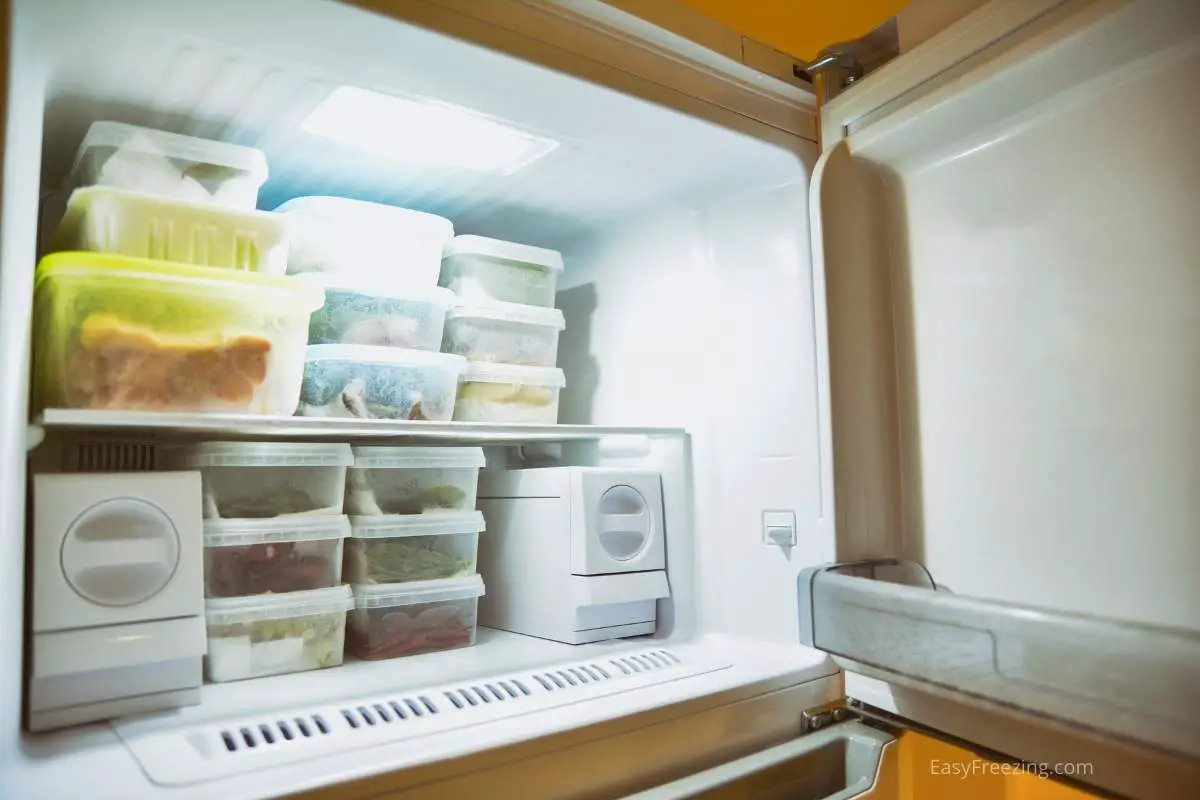
To prevent this, ensure that you regularly check your freezer’s temperature and that it is sufficiently cold (at or below 0° F or minus 18° C).
Can I Eat Frozen Meat Which Has Changed Color?
Regular changes in the coloration of your meat, such as darkening or fading, can occur whether you store them in the fridge or freezer and do not affect the safety of the food. You can minimize color changes by using freezer packing and expelling as much air as possible before storing.
If you see patches that are dry and white, this is an indication of freezer burn. This happens when meat or poultry is stored for a prolonged time with insufficient packaging. Meat with freezer burn is still safe to eat, but you may want to trim away the white areas as they will be dry and tasteless.
Does Flash Freezing Kill Bacteria?
Frozen foods in the supermarket often undergo a different type of freezing process, called flash freezing. They use this method to improve overall food safety; the problem is that flash freezing prevents the formation of ice crystals and thus allows more significant numbers of bacteria to survive the process.
Does Freezing Kill Bacteria – Final Thoughts
In general, freezing will decrease the number of bacteria in your food, but not significantly enough to prevent the risk of food poisoning. And foods (including meat, dairy, and vegetables) that are frozen need to be cooked thoroughly before you consume them.
